How to Become a B Corp-certified Coworking Space? The experience of Work.Life
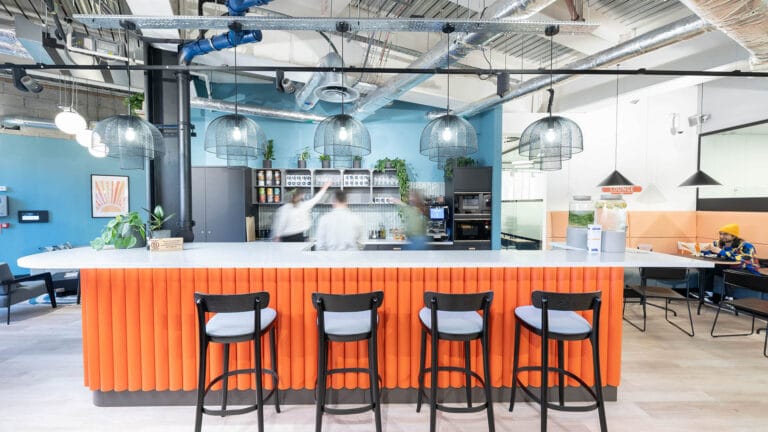
Sustainability is now a cornerstone of business strategies in every industry, including the coworking sector. This shift marks a significant movement towards operations and business models deeply committed to environmental and social well-being. As the concept of sustainable coworking matures, so does the opportunity for these spaces to demonstrate their dedication to making a positive impact on our planet.
In 2024, how are coworking spaces stepping up their game to create more sustainable environments? Discover the answer through a series of three compelling case studies, each offering a unique glimpse into the efforts taken to shape the better future of sustainability in the workplace.
First up, we're excited to guide you through an initiative that's been making [big] waves for the past two years: B Corp. If you're new to B Corp and wondering what it entails, you're in the right place. This article will demystify the concept for you.
To bring the discussion to life, we'll present a real-world case study from a coworking brand that has embarked on the journey to becoming a B Corp-certified business. They've shared their experiences with us—highlighting the impact on their brand, team, and community—to give you a comprehensive look at what achieving this certification involves and the benefits it brings.
🌱 What is B Corp?
🤓 Case Study: Work.Life’s Journey to B Corp Certification
🌙 To Go Further: Discover All The Coworking Spaces That Are B Corp Certified Around The World To Date.
What is B Corp?
For you to fully appreciate the content that is coming, let us make a pit stop at the basis of this article: clearing out the term ‘B Corp’. If you have never heard of it, B Corp stands for Benefit Corporation. The B Lab* movement was initiated by 3 friends in 2006 who had a vision: make business a force for good.
“We’re building the B Corp movement to change our economic system — and to do so, we must change the rules of the game. B Lab creates standards, policies, tools, and programs that shift the behavior, culture, and structural underpinnings of capitalism. We mobilize the B Corp community towards collective action to address society’s most critical challenges.” - B Lab.
*If you are keen to get the full story (which is a fascinating one!), make your way to the end of the article for a great resource on how it all started.
Since its inception, B Lab has audited and rewarded over 8,180 companies across 161 industries in 95 countries. You can easily spot companies who are a part of the B Corp movement, on the B Corp website (link at the end of this article).
As you are about to discover in our coworking case study below, getting the B Corp certification is a journey. One where B Lab looks at 5 different pillars of your business, namely governance, workers, community, the environment, and customers to assess its impact on people and the planet.
To receive the certification, you will need to get a score of at least 80 out of around 250. The assessment varies depending on your company size. An important fact, the B Corp certification is not something you receive for life. Every 3 years, you need to go through a recertification process where the B Lab team looks at the business again and assesses it for a new score. If you land below 80, you lose the certification.
Getting the certification is not free and once again, prices and fees will vary depending on your company size. See below the latest pricing structure.

🤓 There are currently 48 coworking brands around the world that received the B Corp certification.
🤓 HUB Australia is the first coworking space in the world that received the certification in 2013 (over 10 years ago!)
Keep scrolling for more interesting facts on coworking spaces and B Corp.
Case Study: Work.Life’s Journey to B Corp Certification
Now that the philosophy behind B Corp is clearer, it is time for us to introduce our coworking case study for today. Meet Work.Life, a London coworking brand that received the B Corp certification in 2019.
We had the chance to virtually meet Elliot Gold, Co-Founder and CEO of Work. Life and Ana Bernardo - Area Manager and Sustainability Lead, who was in charge of managing the B Corp process at Work.Life. Together, we discussed their journey from their initial purpose to the challenges it brought and the opportunities it led to.
Who is Work.Life?
Location: London, United Kingdom
How did Work.Life come to life?
“Over the years, I've experienced both outstanding and poor working environments, recognizing the significant impact they have. The notion that work is merely a compulsory task, or worse, something many dread, has always puzzled me, especially considering the substantial portion of our lives it occupies. Furthermore, a troubling percentage of the UK's workforce remains disengaged in their daily tasks, a fact that continues to perplex me. At Work.Life, we are committed to transforming this narrative by striving to make people's work lives happier.” - Elliot Gold, Co-Founder and CEO
Number of spaces today: 15 locations across the UK
Sneak Peek at Work.Life’s spaces ⬇️
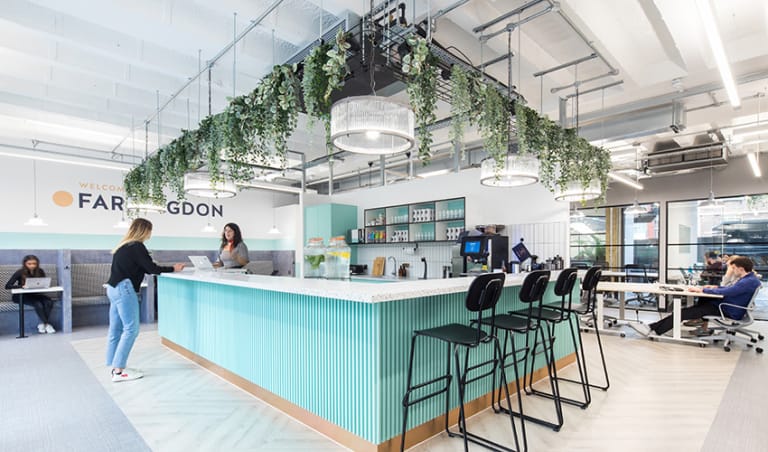
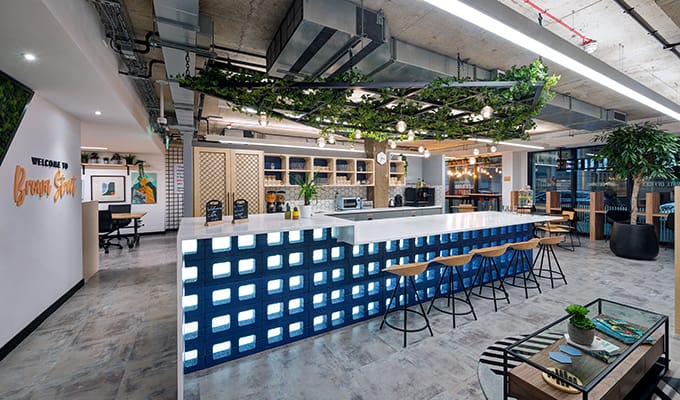
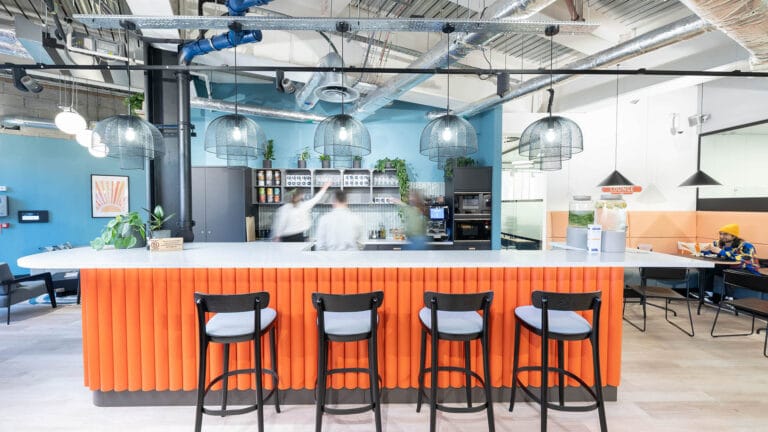
A sneak peek at different Work.Life locations across the UK - Image Credits: Work.Life
Work.Life and B Corp - A Coworking Case Study
😥 The Initial Challenge
"We never quite knew how to structure our thinking or our priorities around sustainability when we started."
🧐 Finding The Solution
"Our Head of Marketing read about B Corp and came up with this hurray moment that there was a way to structure our goals around sustainability."
🔩 The Certification Process
"We started the B Corp certification process in 2019. There were 11 of us initially involved in the process. In total, the entire process from beginning to end took us about two years."
🌱 The Aftermath
"It's given us that overall framework which is what it's designed to do. it has galvanized everybody around what we're doing. It helped define our long-term sustainability strategy."
A conversation with Elliot Gold, Co-Founder and CEO of Work.Life and Ana Bernardo, Area Manager and Sustainability Lead at Work.Life.
🎤 At what point of the journey of Work.Life did you start looking into sustainability?
Elliot: Sustainability has been important to us right from the start. However, we never quite knew how to structure our thinking or our priorities when we started. It was all quite disorganized and the work that we did was quite sporadic.
🎤 When you say it was quite frantic, what do you mean?
Ana: I think everyone at the time had a slightly different idea of what sustainability meant and what we should be doing. We were doing work in different areas of the business but there was no overarching framework to help us. For instance, we were organizing the way we engage with our suppliers or looking very carefully around our energy usage but the lack of structure made it feel frantic.
🎤 How did you come across B Corp in the first place?
Ana: We found out about B Corp through our Head of Marketing who'd read about it and came up with this hurray moment that there was a way to structure our goals around sustainability.
🎤 How was the process of getting certified by B Lab?
Ana: The B Lab team makes it quite accessible and I think this is one of the powerful things about B Corp. It's a really good hook to get people to begin with that sustainability work because the process makes it quite tangible.
B Corp does not look only into your environmental impact it also looks at 4 other areas: your workers, your governance, your customers, and your communities.
You can do that assessment by yourself, online, on their website. By doing that, you understand what the areas are, what you're doing well, and what areas you need to work on.
Following the assessment of your overall impact on their website (ndlr, which is free) you can decide to pursue the certification process (ndlr, which is where you start paying). If you decide to go for the certification, you will then be audited by a B Lab consultant. You need to make sure that all the answers you provided in the assessment process are correct. If you achieve their benchmark and reach a score of 80 points then you get the certification.
For us, at Work.Life, we started the B Corp certification process in 2019. Then we all know what happened in 2020. But actually, it was nice to work on that project during the pandemic. While we were building the business back in 2015, we always had the approach of involving everyone who wanted to be involved because we felt that's how we could move it forward. We did the same for the B Corp certification process.
It's been amazing to work with different people in that context. We now have two distinct groups in the business that are leading this work: our sustainability committee and our sustainability champions. This committee brings people like myself and others who are representing other areas of the business like facilities, people, or governance. Everyone is leading their areas within the framework.
🎤 How many people from your team were in the process of getting B Corp certified? How long did it take you to get the certification?
Ana: There were 11 of us initially involved in the process. But again it was a bit of an interesting time because we were rebuilding the business after the pandemic. There was a lot of backlog of work from B Corp as well so it took us about one year from the first assessment to submit the the final assessment.
Then it took us about another year to wait for an auditor to certify us so in total it was about two years process.
If you can, support our work and help us continue producing independent content by becoming a Pro Member for 4.15 euros/month, which is 50 euros a year.
Upgrade your membership here.
🎤 Do you involve your community in this process?
Elliot: Yes! One of the relatively new forums we've set up is our members' board. Our sustainability goals are something we address with them and then more generally we're always getting feedback from the community. We celebrated our certification with our members and continue to engage them in what we're doing through our newsletters and through any other comms that we're putting up.
Ana: We also involve them in some key initiatives. For instance, during the previous quarter, we managed to achieve a 70% recycling rate through working with our members. The price to get was to then donate to a charity of their choice.
🎤 What is the before and after of getting B Corp certified?
Elliot: From the way that we think about our sustainability goals, it's made life much clearer because it's given us that overall framework which is what it's designed to do.
You can't underestimate how important this is to various stakeholders in our business and that's a real learning for me. Take our team for example. We've got a team of about 65 people and the majority of them are engaged in what we do. Ana spoke about the sustainability committee and the champions across our business and I'd say the majority of our business is involved in some way against B Corp and our sustainability strategy going forward.
So what it's done is galvanize everybody around what we're doing.
It wasn't hard to Galvanize everybody because the type of people that we hire are passionate about this anyway.
I'll just add as well the fact that another strength of the framework is you need to recertify every three years so once you get the application you have to continue to improve your sustainability credentials. It's really helpful as well for us because it helped define our long-term sustainability strategy.
🎤 Is your long-term sustainability strategy based on the score you received from B Lab to improve areas where your score was maybe lower?
Ana: Yes, this core is our internal metric for sustainability work.
We have a defined company goal for this financial year to achieve a score of 100 on a self-assessment. Every quarter what we do is reassess ourselves against the framework to understand where we are. That's exciting because it's again making it quite concrete and we then can design the rest of the framework and the rest of the roadmap based on that.
🎤 What has been the most challenging aspect for you to work on out of the 5 areas B Lab looks at?
Elliot: The environment. The reason is we lease all our buildings. We have 15 of them and we lease them from different landlords. Collecting the data and understanding the impact of the data has been the biggest challenge. Understand how we can collect the data the best way possible but also look at upstream of operations and understand that we need to start having the conversations before we acquire the buildings. We've now designed a good framework for this to make sure that we have the right set of data going forward.
The last year our team has been working very hard to get the data and we're very happy to say that we managed to get all the data we needed. That has helped us understand what we can do and continue to do to improve going forward.
For anybody thinking about whether this is right for them the important point is B Corp is not perfect and they are aware of it. They're working on updating the framework. But whether it's B Corp or another framework for us having that way to organize our thinking and organize various work streams has been valuable and something we’d recommend to other operators.
🎤 What are the things you've learned in the process regarding Work.Life?
Ana: One of the things I love about Work.Life and working here is the fact that we have a team of people who are aligned with our values. It has been amazing to see because the fact that everyone is so passionate makes sustainability part of our DNA. We do this work because it's the right alignment for us and for me that's that's been the most incredible thing. Working with so many passionate people doing this work on top of our day-to-day jobs and continuing to have that as a priority for us in our roles and embedding this in our business has been incredible to experience.
Elliot: I have to follow suit and say something similar which is just I've seen how important it is to our team. As Ana said, everyone's got day jobs and I've seen just how passionate people are about this so it gives us confidence that we're on the right track with what we're doing and it's not just because we find it important as a leadership team or senior management team but everyone is energized by what we're doing.
🎤 What would be your number one piece of advice for coworking operators reading this and thinking about certifying their coworking spaces with B Corp?
Elliot: I would I would recommend it highly. Whether it's B Corp or another framework having a structure behind your objectives takes off the pressure for you to be redefining things you don't need to be redefining. Again, B Corp is not perfect and there'll be things within this framework that perhaps aren't relevant to your business but the structure it gives was really helpful for us.
Ana: I agree. I’d say to get started find a framework that works for you. There is no one-size-fits-all in sustainability and that's also why sometimes it's a little bit scary. Speak with others who have started that journey. Connect with me if you’d like to chat. There is a lot to do there as well on how we continue to collaborate on this topic and support other spaces in the process.
Download their impact report by making your way to the section below.
To Go Further On Coworking and B Corp
This article is full of 'goodies' to help you further your learnings on B Corp :)
Our team has analyzed the B Corp website and created a list of all the coworking spaces around the world that are currently B Corp certified. You were able to access a few of our findings in this article, but there is more to it that’s fascinating! If you wish to receive the full list, send us an email.
See below for a few additional resources mentioned in this article:
Our First Online Coworking Event Of The Year Is Live!
Wrapping things up with one more piece of news: join the first Coworkies Readers' Club online event of the year below on February 29th and let's explore the topic of 'sales in coworking spaces'* ✌️
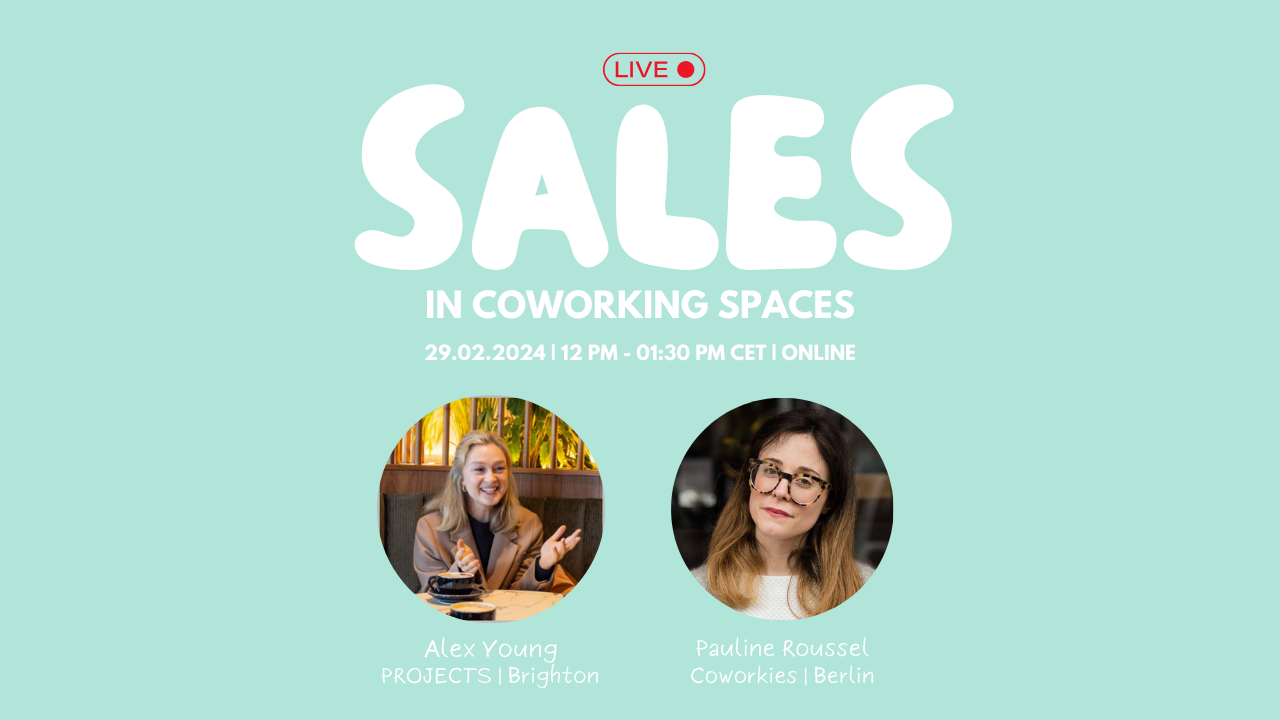
If you are not a Pro Member yet, purchasing a ticket to the event will unlock a membership to Coworkies Readers' Club.
*More speakers will be announced in the coming days
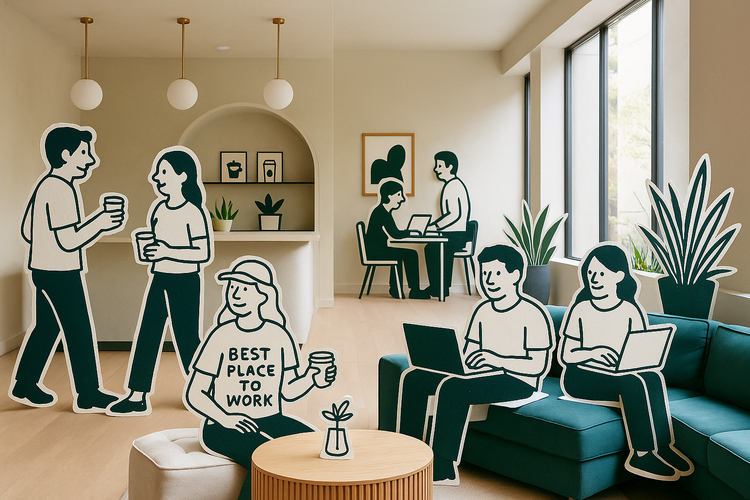
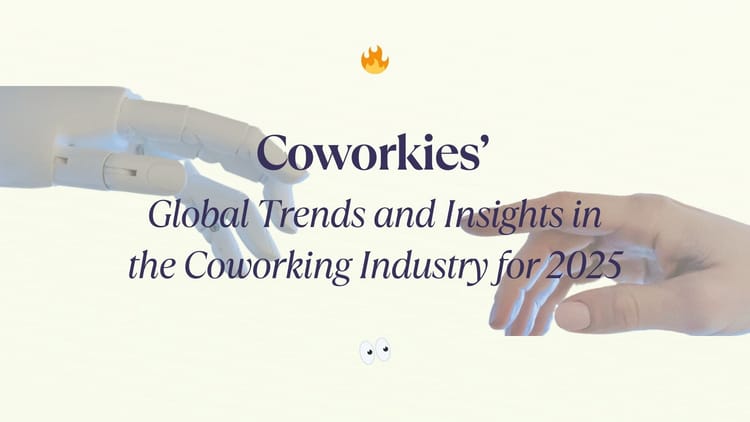
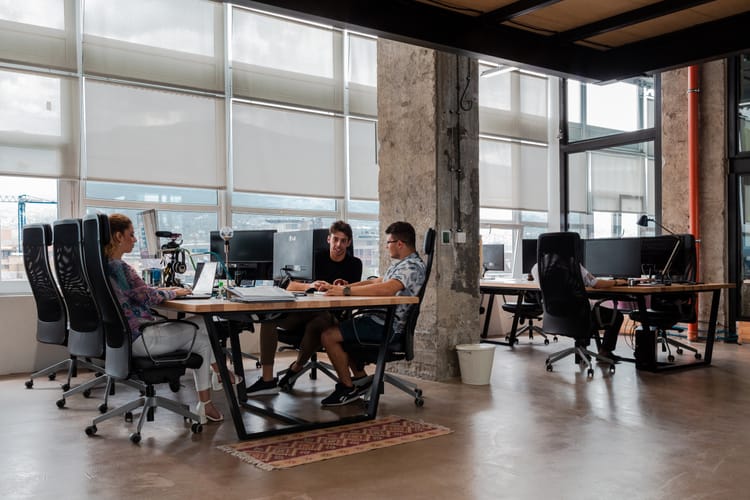
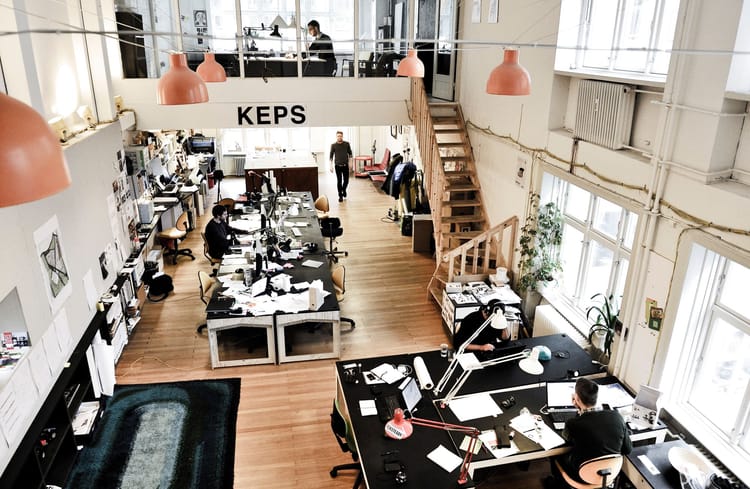
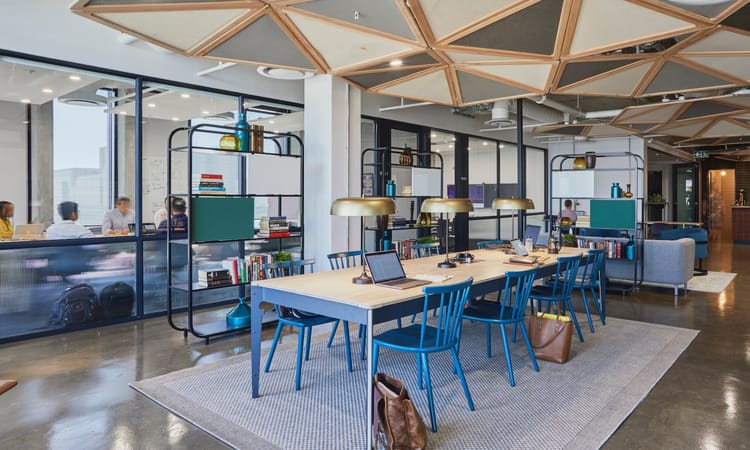
Member discussion